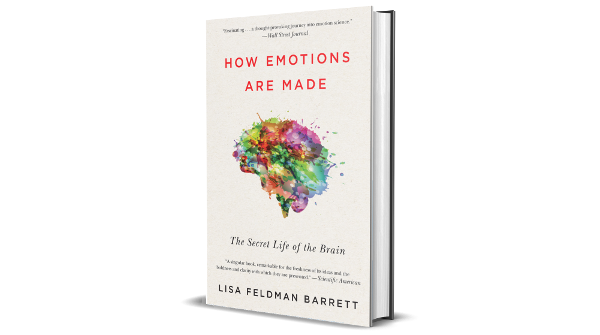
She is also the Chief Science Officer for the Center of Law, Brain & Behavior at Harvard University. She is a University Distinguished Professor of Psychology at Northeastern University with appointments at Harvard Medical School and Massachusetts General Hospital. Lisa is among the top 1% Most Cited Scientists in the world for her revolutionary research in psychology as well as neuroscience. If you follow this show or up-to-date on the latest pain science, you know that the definition of pain is that it’s both a physical as well as an emotional experience. We have a very special and distinguished guest joining us to discuss the topic of emotion and how emotion relates to chronic pain. Revising that conception of emotion isn't just good science, Barrett shows it's vital to our well-being and the health of society itself.Welcome back to the Healing Pain Podcast with Lisa Feldman Barrett, PhD This new view of emotions has serious implications: when judges issue lesser sentences for crimes of passion, when police officers fire at threatening suspects, or when doctors choose between one diagnosis and another, they're all, in some way, relying on the ancient assumption that emotions are hardwired into our brains and bodies. Emotions aren't universally pre-programmed in our brains and bodies rather they are psychological experiences that each of us constructs based on our unique personal history, physiology and environment. But what if it is wrong? In How Emotions Are Made, pioneering psychologist and neuroscientist Lisa Feldman Barrett draws on the latest scientific evidence to reveal that our common-sense ideas about emotions are dramatically, even dangerously, out of date – and that we have been paying the price. This understanding of emotion has been around since Plato. The thrill of seeing an old friend, the fear of losing someone we love – each of these sensations seems to arise automatically and uncontrollably from within us, finding expression on our faces and in our behaviour, carrying us away with the experience.

Many scientists believe that emotions come from a specific part of the brain, triggered by the world around us.


When you feel anxious, angry, happy, or surprised, what's really going on inside of you?

It took a subject I thought I understood and turned my understanding upside down' - Malcolm Gladwell, author of The Tipping Point. ' How Emotions Are Made did what all great books do.


 0 kommentar(er)
0 kommentar(er)
